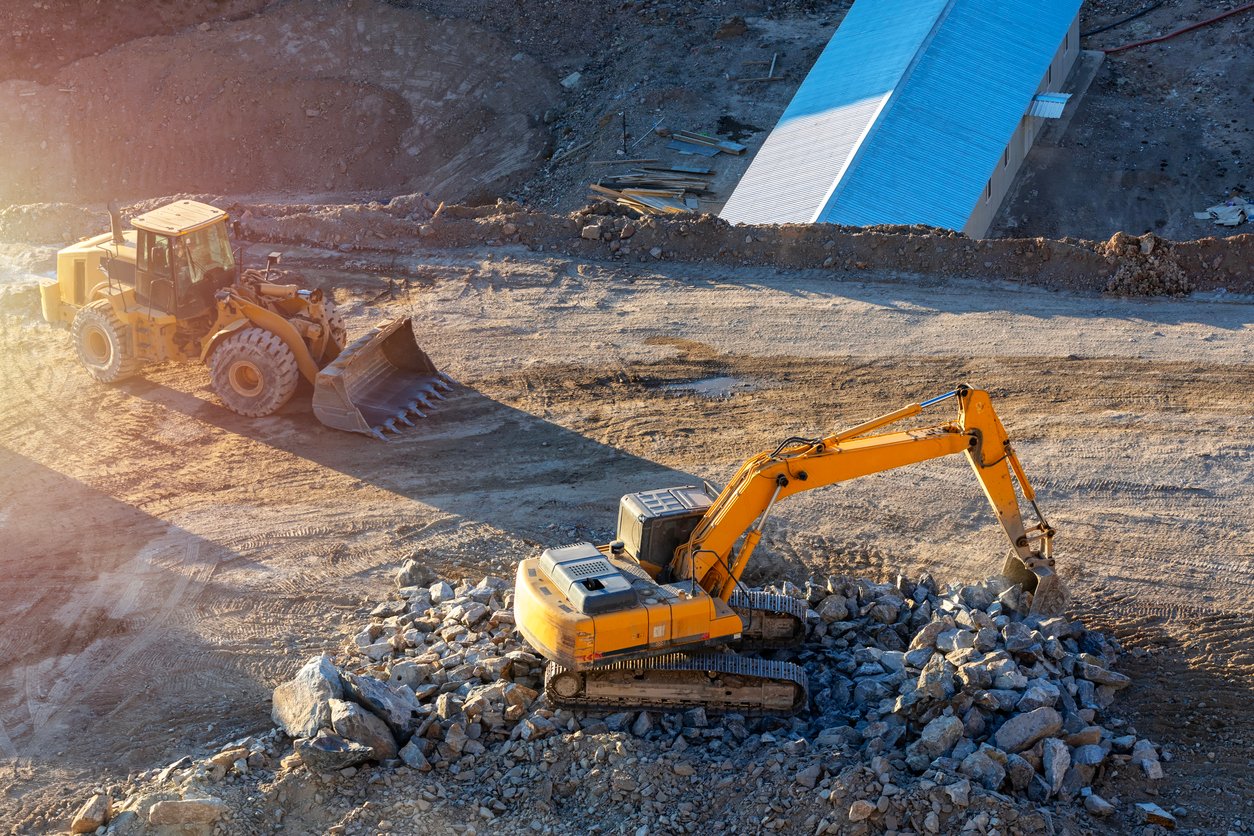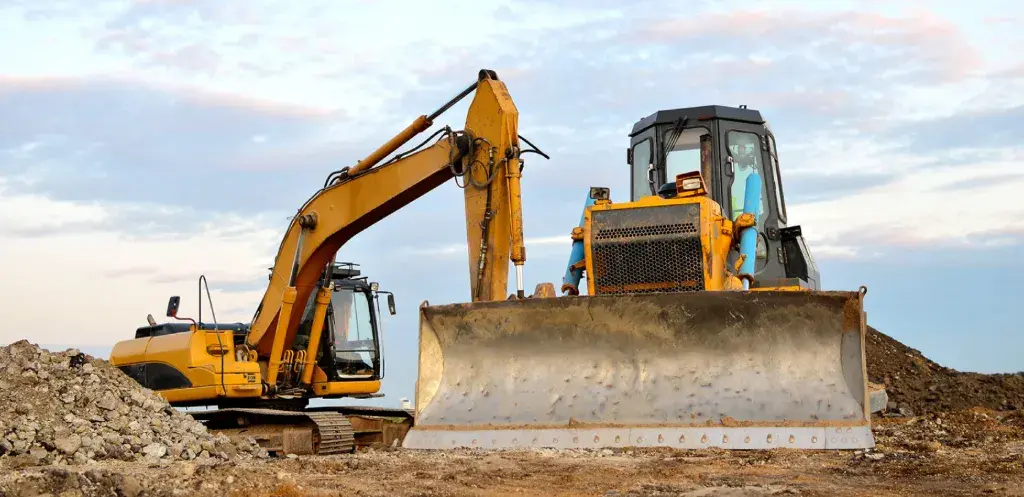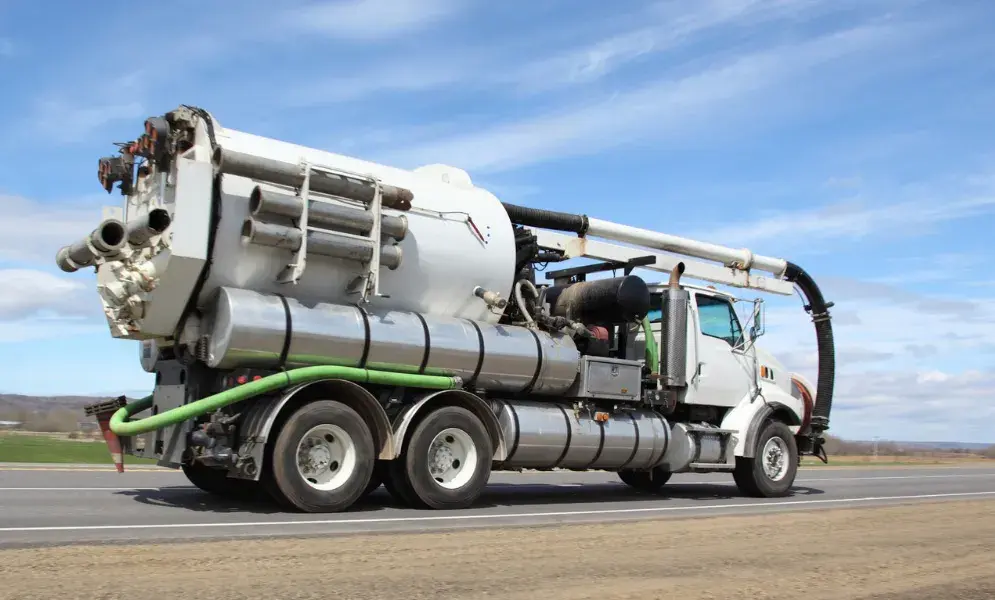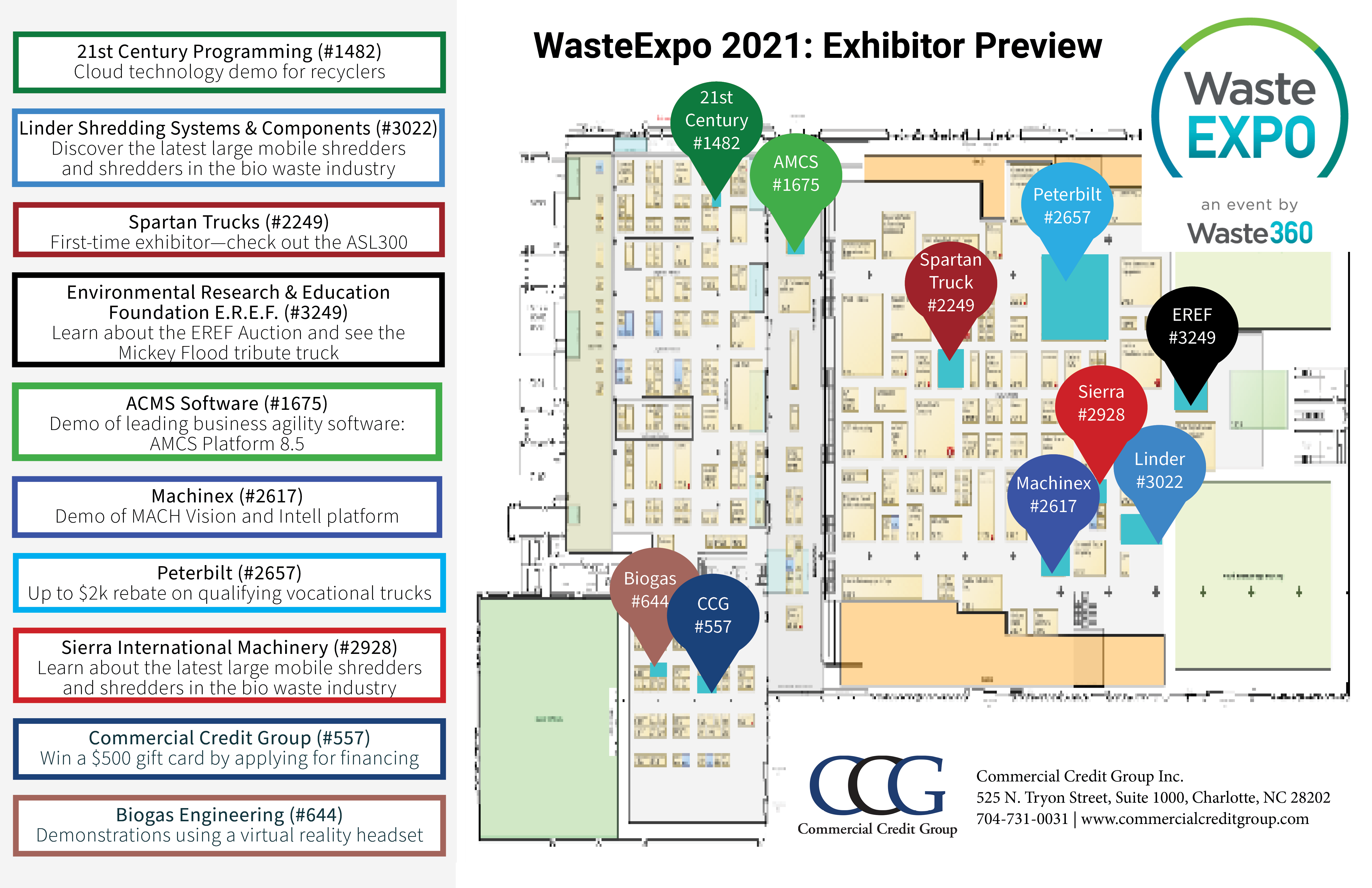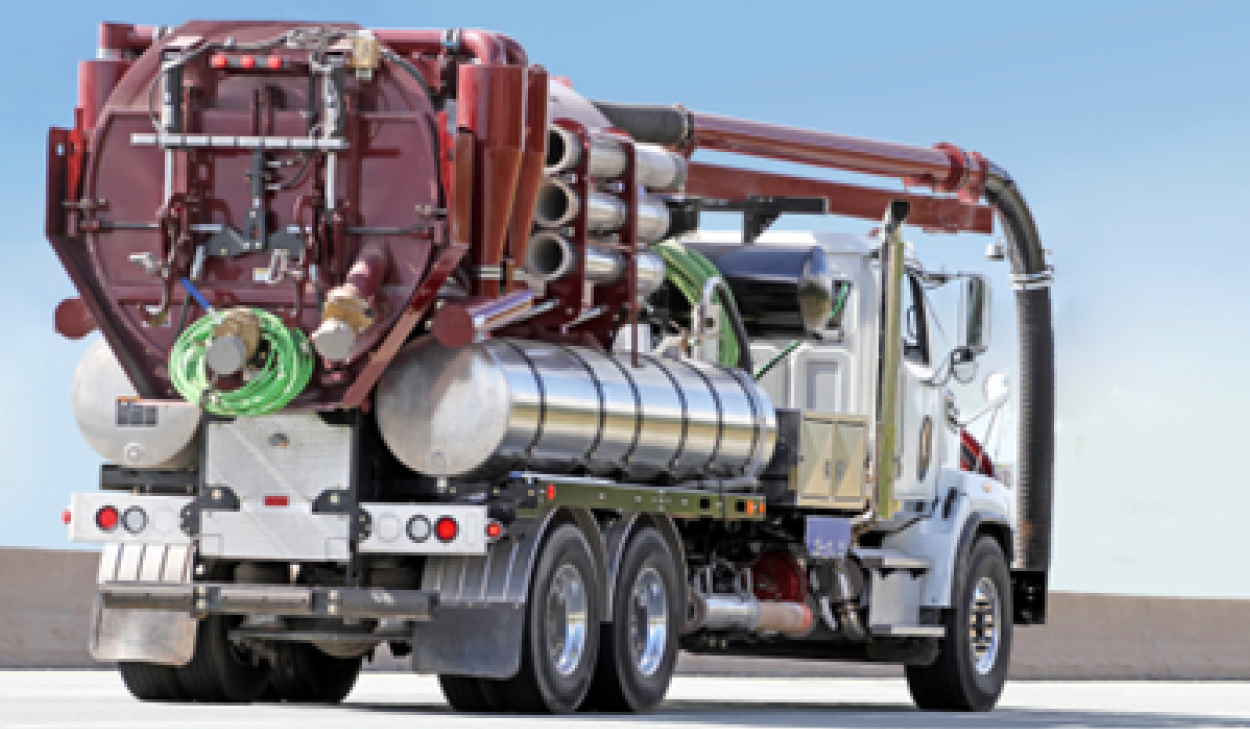Capital Investment for Waste and Recycling Companies
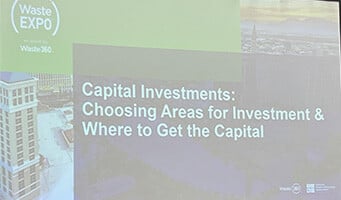
During WasteExpo 2024, Kevin McGinn, Sr. VP for Commercial Credit Group Inc. (CCG), moderated a panel discussion titled Capital Investments: Choosing Areas for Investment & Where to Get the Capital.
Panel members included: Dan Christensen from CARDS Recycling, Martin Mattsson from Volvo Construction Equipment, and Rusty Angel from Machinex.
This post highlights some of the important points from the session and provides some key takeaways that waste and recycling companies can use to guide them as they make decisions about obtaining capital to fund and grow their businesses.
Top three takeaways
- Explore multiple avenues to obtain capital. Each has a unique position in the capital marketplace and businesses should match needs and goals to the investment type selected.
- To extend the life and value of your equipment, ensure proper equipment maintenance, manage your equipment lifecycles, and consider adopting telematics to provide insight into operations.
- Supply chain issues have improved, but there are ways to help deal with monetary issues and equipment availability caused by them.
Where to Find Investment Capital
Companies can use multiple types of financing and capital infusions over the lifetime of a business, and some can be used simultaneously. Talk with your equipment manufacturers, dealers, or lenders who specialize in the industry to help determine which options work best for your needs and investment types.
Equipment Financing
For equipment purchases, financing can be obtained from the captive lender (equipment manufacturer’s financing arm), commercial equipment finance companies, banks, and local credit unions. In some cases, you can use the equity in your existing equipment to obtain working capital loans.
Asset-Based Loans
Asset-based loans are secured by various types of collateral. They work as revolving lines of credit, allowing a company to borrow continuously as needed. Assets used as collateral for the loan can include equipment, accounts receivable, real estate, inventory, and more.
Credit Facility
A credit facility is a revolving line of credit arranged between a bank and a business. It allows ongoing access to the credit in the line without having to initiate a new loan each time capital is required. The company borrows, pays back, and borrows again without having a fixed payment schedule.
There is a maximum amount that can be borrowed, but the business can access the capital as needed, and use the funds for operations, equipment purchases, or other business obligations.
Grants
Grants are issued by the government, non-profit entities, private foundations, or corporations but require organizations to compete for funds based on an application process. Grants are not expected to be repaid but the funds must be used for the stated purpose in the application.
Typically grants are issued to help fund projects that address a specific problem or forward a certain agenda. In the waste and recycling industry, grants are available to improve recycling rates, enhance the implementation of recycling and recyclable materials, increase the adoption of alternative-fueled vehicles, and more.
While discussing grants, two panel members suggested you ask your equipment dealer or manufacturer if they know of any available grants. Martin Mattsson pointed out that the grant process is not easy, but the manufacturers have the resources to help companies learn how to apply for those grants. Rusty Angel noted that grant administrators rely on equipment manufacturers to make customers aware that grants may be available.
Private Equity
Private equity is a type of alternative investment in which the investors purchase shares in privately held businesses. During the session, when asked about private equity investment in the waste and recycling industry, Dan Christensen stated :
“I think that our industry has become very glamorous and is drawing a lot of attention from potential investors."
Possibly because other sectors are maybe not generating a stable return like we can, in times of hyperinflation or in times of economic uncertainty.”
The Importance of Equipment Maintenance and Lifecycle Management
Equipment maintenance was mentioned by all panel members as being extremely important for any company. Proper maintenance helps equipment maintain its value longer, reduces downtime, and contributes to overall employee satisfaction and enhanced brand equity for a hauling and recycling company.
Martin Mattsson from Volvo recommends exploring maintenance leases or maintenance agreements from your equipment dealer, especially if your company doesn’t have a maintenance department. He noted that preventive maintenance is critical to extending the life of equipment and maximizing your investment.
Rusty noted that this is also critical for MRF equipment because maintenance and repair issues can reduce recovery and purity performance, which directly affects the sale price of the product. He stated, “Downtime kills companies faster than anything.”
One strategy for equipment lifecycle management used by CARDS is to rotate their mobile equipment during its lifetime. Newer equipment runs in the frontline position, and once it ages, it’s moved to a spare position, where reliability and uptime are not as critical, thus extending the life of the machine.
Additionally, telematics can be used to gather real-time insight into how an asset is used, including insight into operator behavior. This allows a company to identify training opportunities, or maintenance issues before they become major repairs.
Supply Chain Challenges and Equipment Acquisition
companies can deal with equipment shortages, or how companies can financially handle sudden availability or early deliveries.
Martin noted that supply chain discussions had been taking place all week during WasteExpo, and that general consensus is that it’s gotten better compared to the previous 12-18 months, isn’t where it needs to be, but it’s moving in the right direction.
Regarding equipment shortages, both Dan and Martin talked about rental equipment as a way to bridge the availability gap.
As for obtaining capital to take advantage of early delivery slots, Dan noted that’s a great example of where a revolving line of credit can help. He also noted these issues require companies to constantly readjust capital budgets, forecasts, and replacement schedules.
One last discussion point regarding supply chain is that the Greenhouse Gas Emissions Standards for Heavy-Duty Vehicles – Phase 3 go into effect with the 2027 model year. Companies should be aware of the legislation and plan their equipment purchases accordingly.
Overall, the session was well attended and the audience was engaged and asked great questions and the panel members provided great insights for companies looking to obtain capital to grow their businesses.
WasteExpo full conference registrants will be able to access the full session recording when it is available. Availability notifications will come from WasteExpo.
About the Moderator:
Kevin McGinn co-founded Commercial Credit Group in 2004 and serves as Senior Vice President – National Accounts and National Waste Division.
About the Panel Members:
Dan Christensen is the president and CEO of CARDS Recycling. Based in Fayetteville, Arkansas they provide residential and commercial waste pickup, roll-off dumpsters, and portables and pumping, covering TX, OK, MO, KS, and AR.
Martin Mattsson is a director of strategic accounts with Volvo Construction Equipment. He oversees the waste and recycling portfolio for Volvo in North America, working with the larger national and regional players on all their off-road equipment for transfer stations, landfills, MRFS, and composting waste.
Rusty Angel is the eastern region sales manager for Machinex. He handles all the sales activity for the company east of the Mississippi. Machinex builds MRF equipment providing sorting and separation technologies for single-stream, dual-stream commercial CMP, various types of waste streams, and mixed waste.
Subscribe to Our Blog
Want to know when our blog has been updated with new posts?
Complete our short form and we’ll make sure you are informed.

Fill out our short form to subscribe


